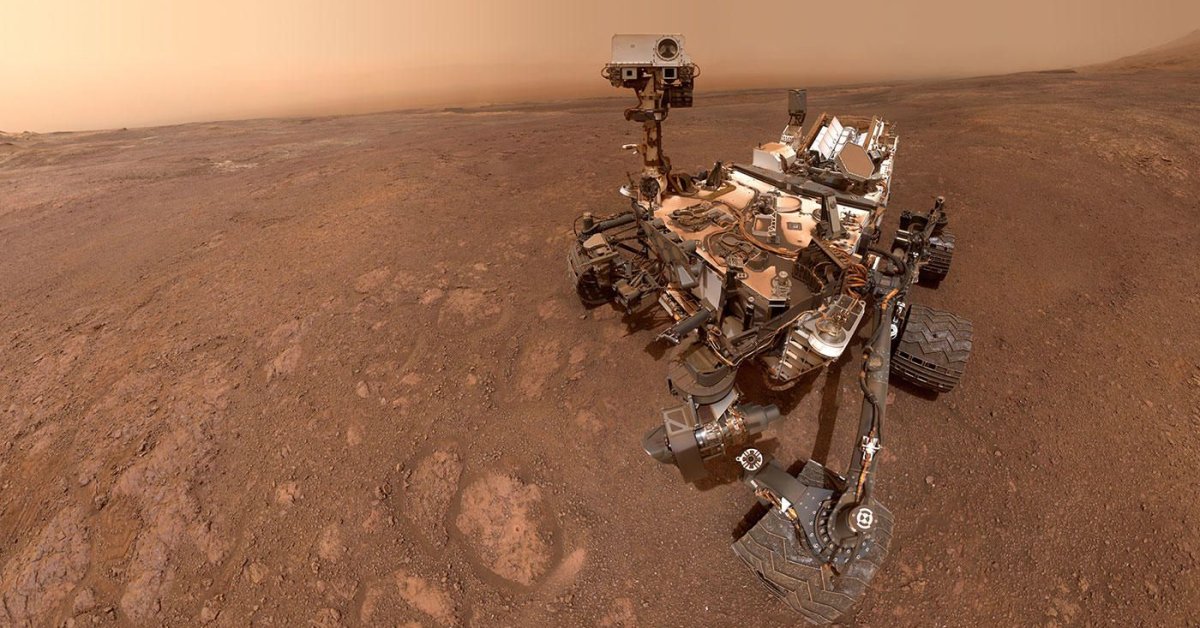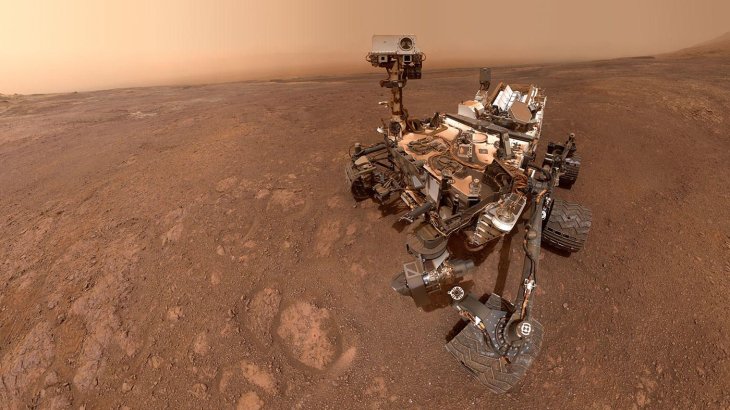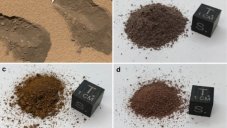NASA Curiosity Rover Takes A Selfie Before Moving On To A New Chapter
Dhir Acharya - Jan 29, 2019

After over a year staying at Vera Rubin Ridge, the Curiosity will now travel to a new Mars region.
- Russia Will Build A Lunar Space Station With China Because It's Done With NASA
- NASA Reveals 20 Most Stunning Earth Images Taken From The ISS
- Indian-Origin NASA Researcher Discovers Jupiter Moon Europa Glows In The Dark
NASA’s Mars Rover, the Curiosity, continues its journey. After more than a year staying at Vera Rubin Ridge, the Curiosity will now travel to a new Mars region and move on with its investigation. But first, it didn’t forget to take a selfie.
On January 15, the rover spent some time taking 57 images from which it generated a fresh selfie. As can be seen from the composite image, the rover still looks strong and healthy. Although Curiosity’s wheel is suffering from some minor damages, NASA is working on it, and the rover is expected to keep operating smoothly.

Curiosity
In the selfie, you can also see a dusty horizon behind the rover which was caused by a local storm as well as a drill hole on its left.
Now, Curiosity is heading to the south of the ridge, where there may be a lot of clay. The rover team has been giving instructions to Curiosity so that it can take a series of short drives while searching for the transition point between the ridge’s bedrock and the clay-dense area.
According to NASA, by taking clay minerals from this unit, we can obtain more clues that can tell us about how the ancient lakes helped form the lower levels on Mount Sharp. This opens a new, fascinating chapter for the mission of the rover.
With the size of a car, Curiosity was launched in November 2001 and landed on Mars’ Gale Crater in August 2012. The Mars rover carried the mission to investigate the climate and geology on Mars, assess the possibilities of microbial life based on environmental conditions like the role of water, and study the habitability on the planet to prepare for human exploration. In December 2012, Curiosity’s mission, which was supposed to last two years, was extended indefinitely. On January 26, 2019, Curiosity celebrated its 2366 days on Mars.
Featured Stories

Features - Jul 01, 2025
What Are The Fastest Passenger Vehicles Ever Created?

Features - Jun 25, 2025
Japan Hydrogen Breakthrough: Scientists Crack the Clean Energy Code with...

ICT News - Jun 25, 2025
AI Intimidation Tactics: CEOs Turn Flawed Technology Into Employee Fear Machine

Review - Jun 25, 2025
Windows 11 Problems: Is Microsoft's "Best" OS Actually Getting Worse?

Features - Jun 22, 2025
Telegram Founder Pavel Durov Plans to Split $14 Billion Fortune Among 106 Children

ICT News - Jun 22, 2025
Neuralink Telepathy Chip Enables Quadriplegic Rob Greiner to Control Games with...

Features - Jun 21, 2025
This Over $100 Bottle Has Nothing But Fresh Air Inside

Features - Jun 18, 2025
Best Mobile VPN Apps for Gaming 2025: Complete Guide

Features - Jun 18, 2025
A Math Formula Tells Us How Long Everything Will Live

Features - Jun 16, 2025
Comments
Sort by Newest | Popular